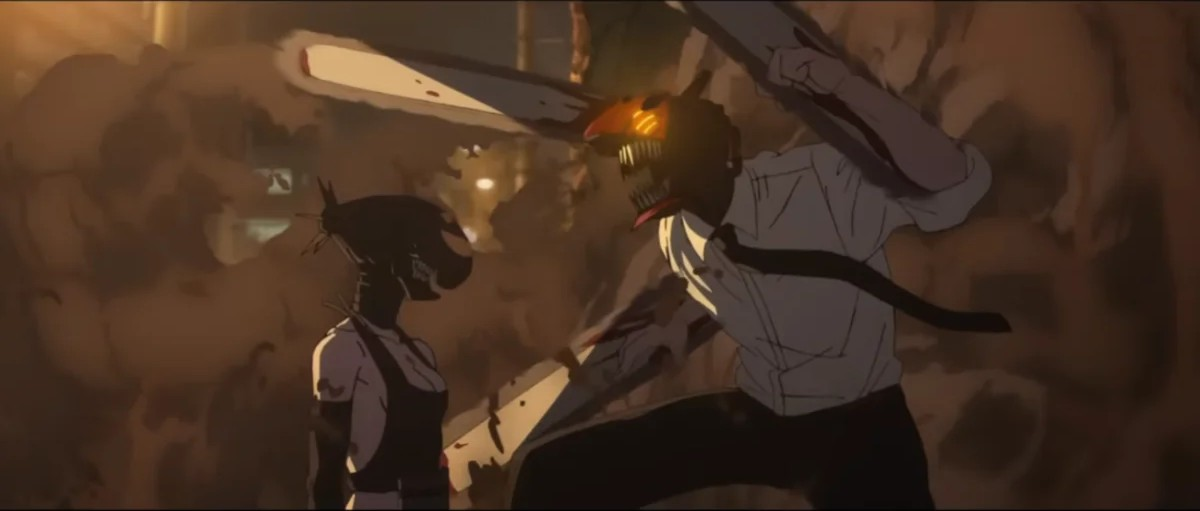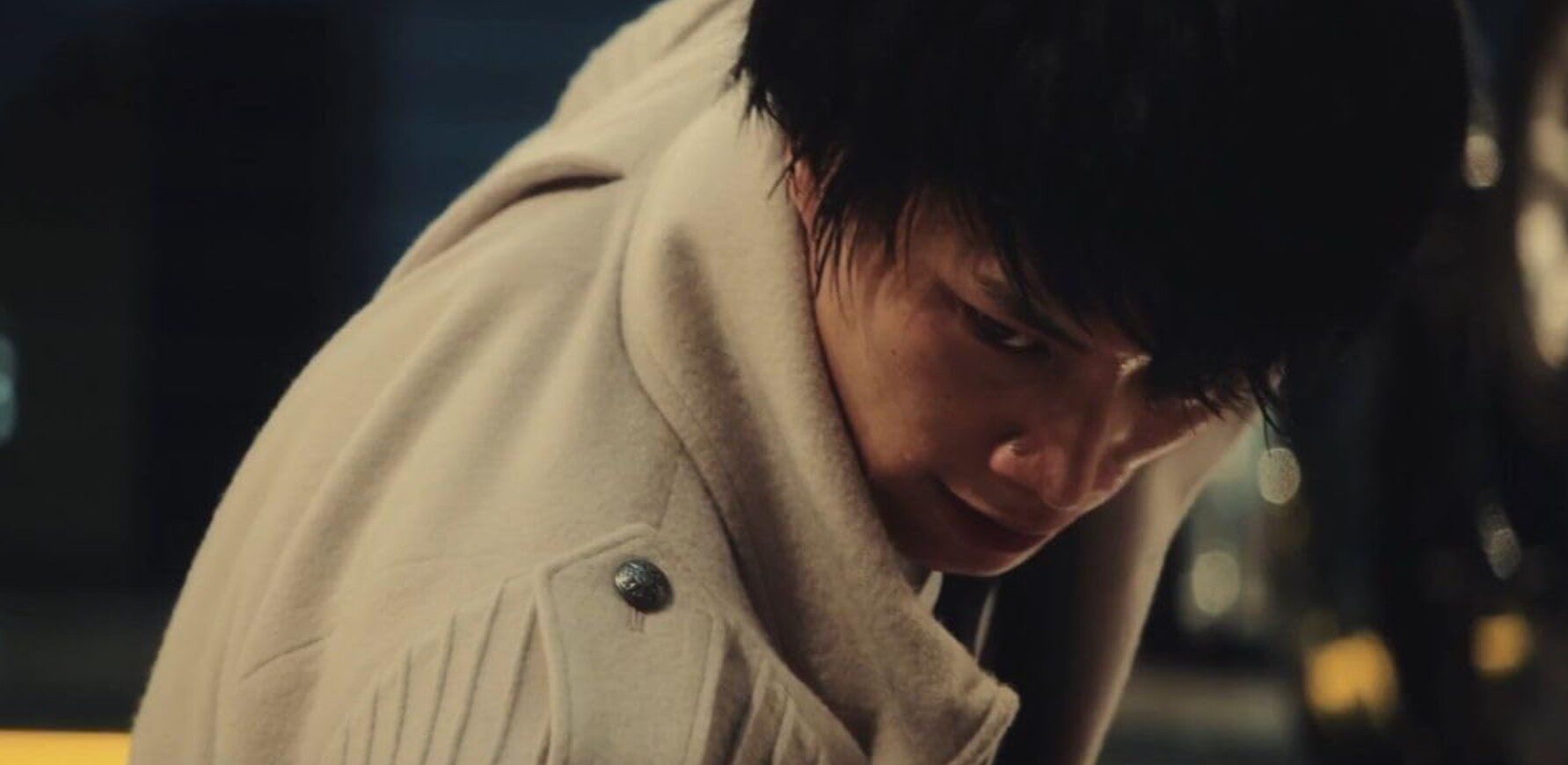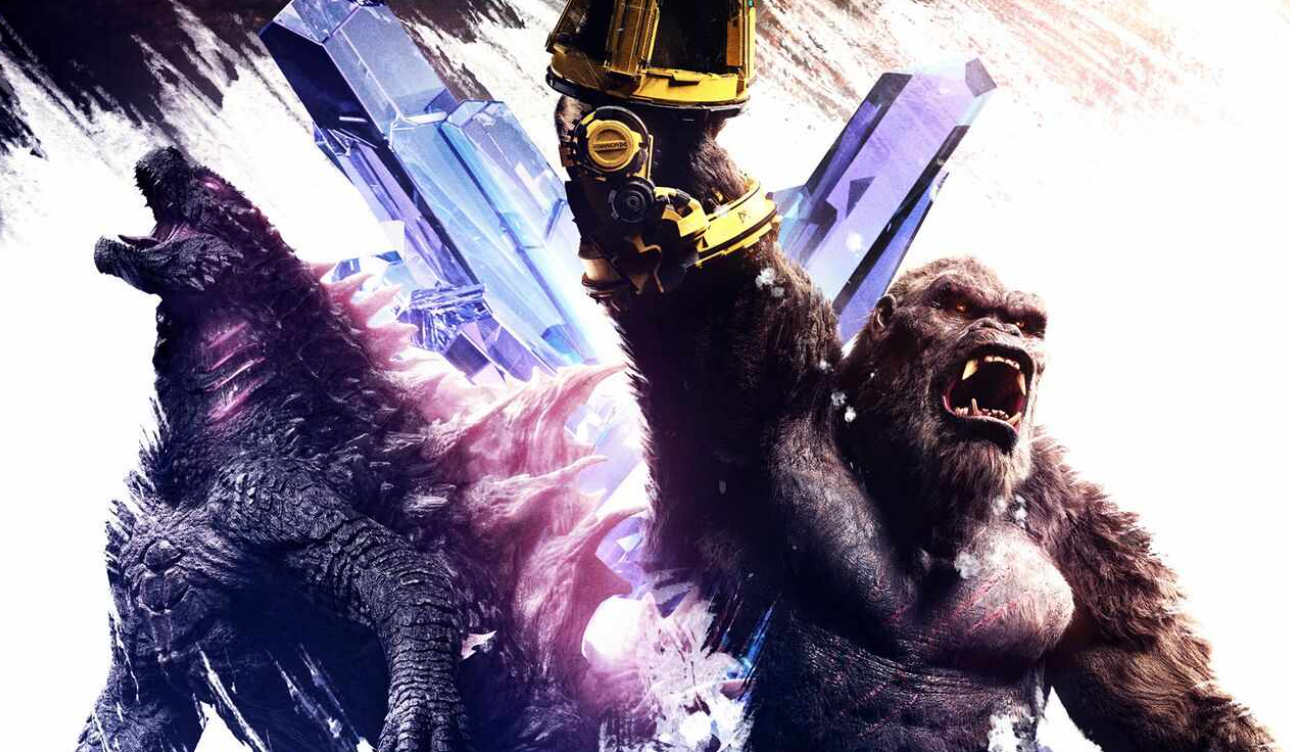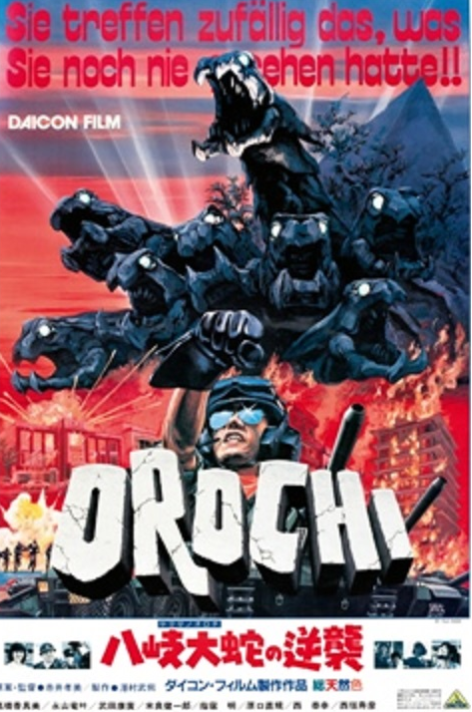Three years following the conclusion of season 1 of the hit Shōnen anime Chainsaw Man, the much anticipated feature film, Chainsaw Man – The Movie: Reze Arc has arrived. Many had high expectations after the incredible trailers, posters, and key visuals, and the movie absolutely smashed those expectations out of the water. This film is an utterly fantastic anime film, and what I find most specifically refreshing and impressive, is how great it is as a standalone film (so I don’t want to pigeonhole it as an anime film). I wouldn’t recommend seeing the movie without watching Chainsaw Man season 1, but I believe that one could see this movie without doing so and enjoy an excellent story. **Spoilers ahead! **
The story picks up following the end of the Katana Man arc, with Denji’s motif dream in his apartment. Then, the audience is treated to a catchy intro sequence, “IRIS OUT” by Hikaru Utada and Kenshi Yonezu, that captures the mood of the work and sets a tone for the film. The first half of the Reze Arc in the manga is very slice-of-life based, and I think the film uses its medium’s capabilities to refine the pacing. Things feel quick (important for emphasizing just how suddenly Reze takes a role in Denji’s life), but individual scenes are very methodical and allow themselves to play out. Fujimoto’s sense of film style in his works is perfectly captured by director Tatsuya Yoshihara. Particularly, the scenes of Denji and Makima in the movies are done really well. Slow, methodical, and lets the scenes play out in a way that adds to the scene in the manga.

Reze and Denji’s meeting scene is executed perfectly, one of my favorites. Solid voice acting (I saw the English Dub) from Ryan Colt Levy and Alexis Tipton that adds to the scene from the manga. The audio and external aspects that a film possess brings so much out of the scene adapted from the manga. The reveal of Reze’s captivating face when Denji gives her the flower is a great payoff. Overall, atmosphere is one of the film’s greatest strengths that I will bring up time and time again.

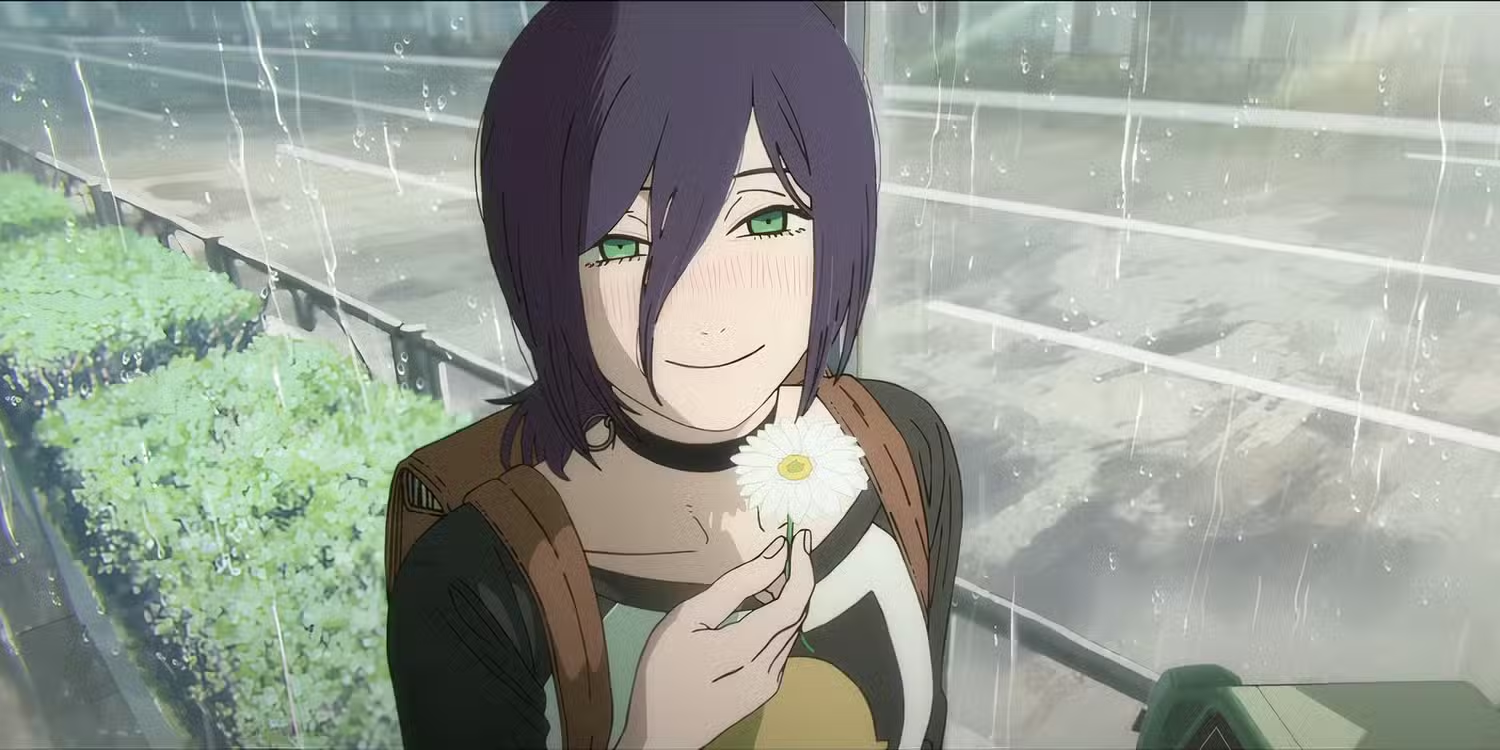
In a movie with tons of awesome action (which I will get to later), my favorite scenes are Denji and Reze spending time together in the school. This film uses aspect to aspect camera shots while dialogue is happening, and the characters are off screen. Very interesting variation from how Denji and Reze’s conversations happen in the manga. Their entire outing in the school is well-paced, methodical, atmospheric, and awesome. The dialogue feels so natural, compelling, and intriguing to follow. Both characters are able to shine well and show their complexity, ironically, through their simplicity (Reze is almost stunned at Denji’s down to earthiness). The piano that plays during the pool scene adds so much and fits the sequence so well (will get back to that piano later).
And now to where the nonstop action and spectacle start. The piano plays again during the fireworks kiss scene but becomes distorted. The reveal that Reze was there to take Denji’s heart is finally executed on the big screen, and it certainly delivers. The film adds some more scenes of Denji bleeding and confused before he even looks up at her face, highlighting the suddenness and shock. The bomb devil transformation is expertly animated and intense, all while the distorted piano soundtrack is still playing. A masterful adaptation of one of the manga’s most iconic scenes.
From there, the Bomb Devil explosively takes on pretty much everyone. To chasing Beam and Denji, to instantly killing civilian devil hunters, and a bout with the Violence Fiend, Reze’s power feels catastrophically unstoppable. There is the perfect mix of tensity, bonkers, and comedy that represents what makes Chainsaw Man so great throughout the final act. Featuring, as Violence Fiend points out, “a kaiju battle!” when Denji rides the Shark Fiend’s back to take on Reze’s devil Typhoon. Mappa’s animation is on point, ambitious, and charmingly chaotic.


Finally, Denji and Reze’s fight concludes with Denji saving the city from her wrath, but choosing to revive her, to Reze’s confusion. Here, Denji’s simplistically complex character really shines. As he says, “What’s the use of living a wonderful life if you chose to do something that remains a pain in your throat.” His spirit is crushed though, when Reze claims to him that she never liked him; that it was all a lie. Even despite this and everything that happened, Denji offers to run away with her. She declines. The movie hits the right emotional notes in tying a bow on Denji and Reze’s tragic relationship.
The ending of this film, I believe, exceeds the ending that is portrayed in the manga. The manga is a chapter that ends an arc, but the movie really feels like it is relishing in its conclusion of a film. Again, it was very atmospheric when Reze was waiting for the train. More aspect to aspect camera POVs. It shows an interesting character without any dialogue or internal thought. The movie lets the camera POV, her action of leaving the train to go meet Denji, and atmosphere do the talking. Her death by the hands of Makima is utterly tragic to witness after everything that happened, and in her final moments, was thinking of Denji. “Why didn’t I kill you the first time we met? Truth is, I never went to school either.” To me, it highlights her similar situation to Denji. She related to him and liked that. Similarly to him, she was trapped in a bad lifestyle due to her powers and employment, hence the “I never went to school either” comment. This adds a lot to the scene of them in the school before; it could be interpreted that when she was telling Denji to “be a normal 16 year old and go to school,” she was projecting her inner feelings on to him.
Did she like him, despite saying to him she never did and not wanting to run away with him? Did she know her days were numbered and didn’t want to involve Denji (during their fight, she implied that Denji was “under the collar of Makima,” she likely knew what Makima was about and was going to do). It could be likely she liked Denji, because she intended to see him at the café. On the surface, the film seems like an action-packed whimsical rom com, but there is so much to unpack. The film does an excellent job of bringing even more out of Reze’s character that was apparent in the manga.

In terms of the film’s approach to the other subplots, Aki and Angel’s dynamic development is well put onto the screen. The film really only focuses on Denji and Reze, but it was impressive that Aki and Angel’s character growth was able to be integrated into the balance. Shark Fiend (Beam) is a joy to watch and fun comic relief; his wholesome allegiance to Denji is a plus. The film places the iconic scene of Denji holding the bouquet of flowers as a post-credit scene, just to hammer home again how tragic this ‘rom com’ really was.
As someone who has been looking forward to this movie for such a long time, and Reze’s arc being my favorite in the manga that I read years ago, this film absolutely delighted me. Chainsaw Man fans have already made it known how much they’ve been flocking to the movie theaters, but any film enjoyer would enjoy this expertly adapted piece of Tatsuki Fujimoto’s work. It can’t be recommended enough.
| Overall Score: 10/10 Chainsaw Man — The Movie: Reze Arc is one of the best animated films of the year. It’s a masterful adaptation of the popular manga, adding atmosphere, depth, and emotion, on top of an action-packed spectacle. |

